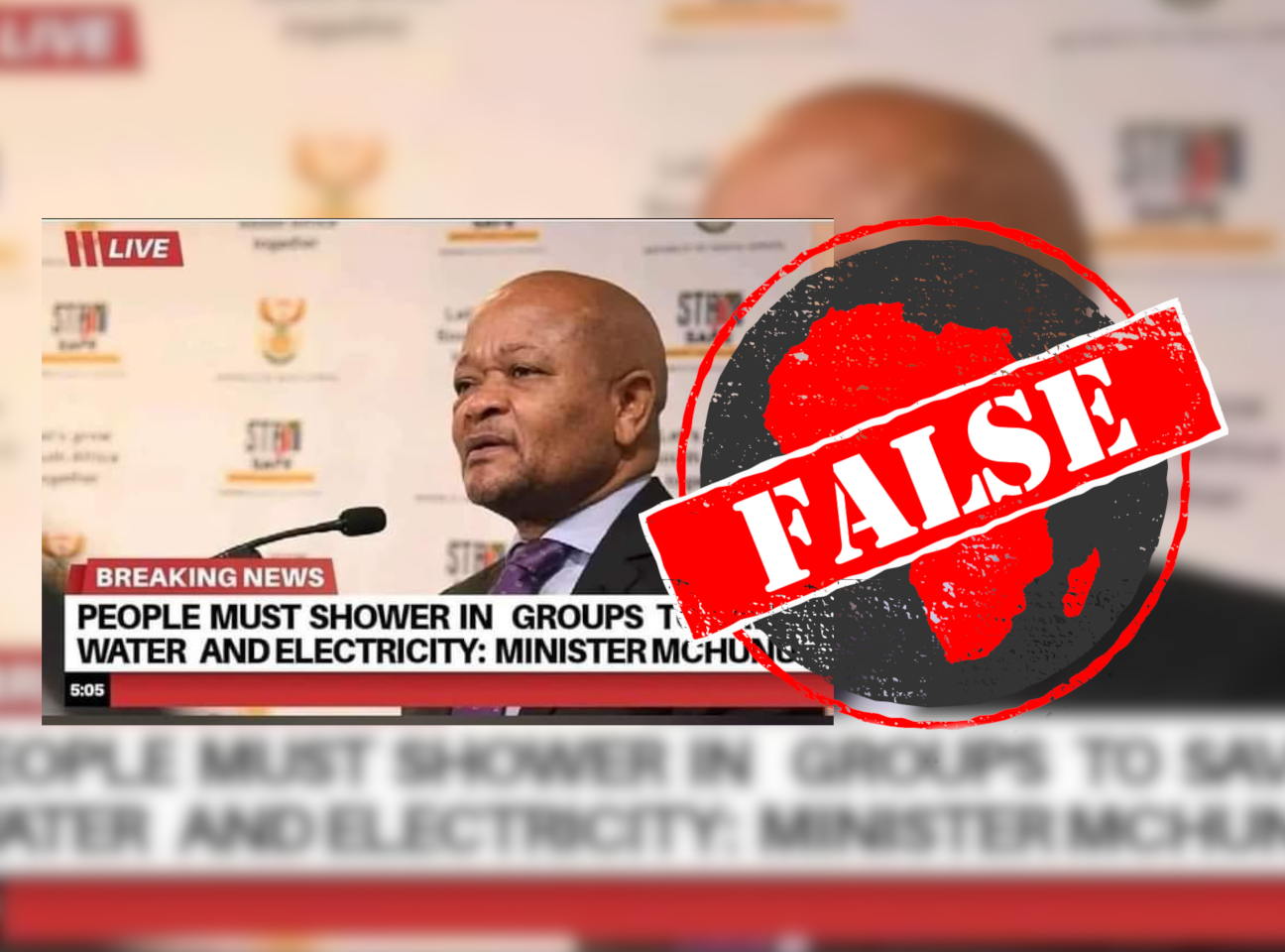IN SHORT: Government ministers do sometimes put their feet in their mouths. But there’s no evidence the South African minister of water and sanitation suggested people shower ‘in groups’, however dire the country’s water and electricity crises might be.
To save water and electricity, people must shower in groups. That’s according to what seems to be a screenshot of a news story crediting the quote to a “minister Mchunu”.
The claim has been posted on Twitter in South Africa but it has also been doing the rounds on Facebook.
Edward Senzo Mchunu is the current minister of water and sanitation in South Africa.
Many South Africans have had to get used to frequent power cuts and water shortages. So did the minister make this radical suggestion? We checked.

No trace of Mchunu quote
A Google reverse image search found no evidence that the quote could be traced to an actual news story by a reputable news organisation.
A quote like this from a member of the South African cabinet would have made news headlines.
We also looked on Mchunu’s official Twitter profile and searched for the quote across government websites, and came up empty.
This quote has been fabricated and can be added to the long list of false quotes, supposedly said by government ministers, that Africa Check has debunked.
When in doubt, do a quick Google search to check whether what you are sharing can be traced to a trustworthy source and is factual.
Republish our content for free
For publishers: what to do if your post is rated false
A fact-checker has rated your Facebook or Instagram post as “false”, “altered”, “partly false” or “missing context”. This could have serious consequences. What do you do?
Click on our guide for the steps you should follow.
Publishers guideAfrica Check teams up with Facebook
Africa Check is a partner in Meta's third-party fact-checking programme to help stop the spread of false information on social media.
The content we rate as “false” will be downgraded on Facebook and Instagram. This means fewer people will see it.
You can also help identify false information on Facebook. This guide explains how.


Add new comment